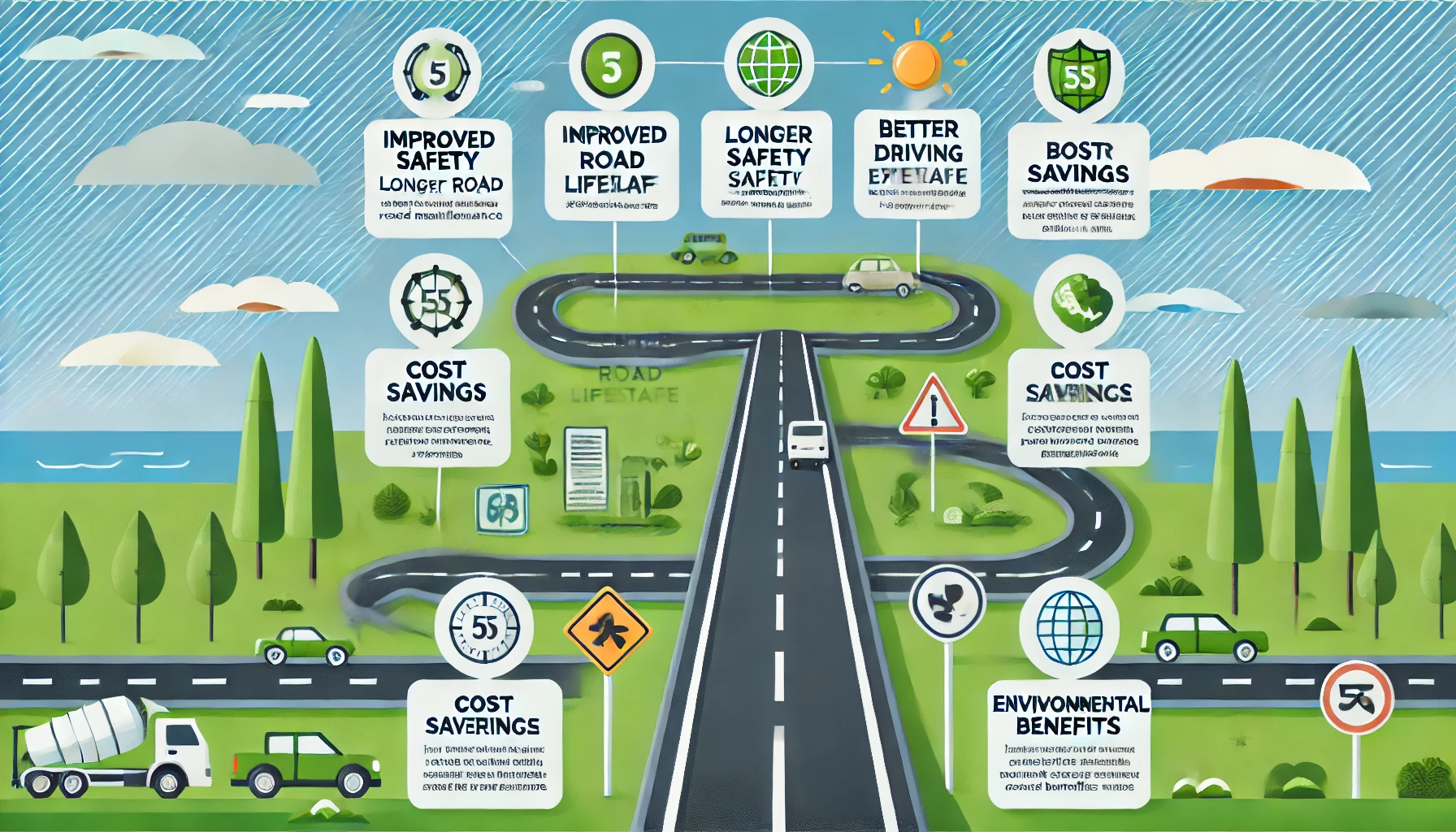Regular Road Maintenance
As a transportation specialist at Mobisinc, I understand the critical importance of maintaining our roadways. While it may seem like an everyday task, regular road maintenance plays a pivotal role in ensuring safety, efficiency, and economic vitality. Let’s delve into why keeping our roads in top-notch condition is a necessity rather than a luxury.
The Importance of Road Maintenance
Safety First
One of the primary benefits of regular road maintenance is enhancing safety for all road users. Potholes, cracks, and uneven surfaces can pose significant hazards to drivers, cyclists, and pedestrians alike. By addressing these issues promptly, we reduce the risk of accidents and injuries. Regular maintenance includes tasks such as:
- Filling potholes
- Sealing cracks
- Repaving worn-out sections
Each of these actions ensures that roads remain smooth and navigable, preventing accidents caused by unexpected obstacles.
Economic Advantages
Reducing Vehicle Operating Costs
Another significant advantage is the reduction in vehicle operating costs. Poor road conditions lead to increased wear and tear on vehicles, resulting in higher maintenance expenses for car owners. When roads are well-maintained, vehicles experience less damage, leading to:
- Lower repair costs
- Improved fuel efficiency
- Longer vehicle lifespan
This not only benefits individual vehicle owners but also contributes to a more efficient transportation system overall.
Environmental Impact
Lower Emissions
Well-maintained roads contribute to lower emissions. When roads are in good condition, vehicles can travel more efficiently, reducing fuel consumption and the emission of harmful pollutants. Smooth roads allow for steady driving speeds, minimizing the need for sudden stops and starts, which are major contributors to increased fuel use and emissions.
Enhancing Connectivity
Improved Accessibility
Regular road maintenance also enhances connectivity and accessibility. Roads are the lifelines that connect communities, businesses, and essential services. By ensuring that roads are in good condition, we facilitate smoother and quicker transportation. This is particularly important for emergency services, where every second counts. Moreover, well-maintained roads support:
- Efficient public transportation
- Reliable delivery of goods and services
- Increased tourism and local business traffic
Preventive Maintenance vs. Reactive Repairs
Cost-Effectiveness
Engaging in preventive maintenance is more cost-effective than waiting for roads to deteriorate to the point where they require major repairs. Preventive measures, such as regular inspections and minor repairs, can extend the life of the road surface and prevent more extensive and expensive damage. By adopting a proactive approach, municipalities and governments can save substantial amounts of money in the long run.
Improving Road Longevity
Extending Road Lifespan
Regular maintenance activities help in extending the lifespan of the road infrastructure. By sealing cracks and repairing minor damages early, we can prevent water infiltration and subsequent freeze-thaw cycles that exacerbate the damage. This not only saves money but also ensures that roads remain functional for a longer period.
Boosting Economic Growth
Supporting Local Economies
Well-maintained roads are crucial for economic growth. They enable efficient movement of goods and people, which is vital for businesses. When transportation networks are reliable, companies can operate more efficiently, reducing costs and increasing productivity. This, in turn, attracts more businesses to the area, fostering economic development and job creation.
Social Benefits
Enhanced Quality of Life
Good road conditions contribute significantly to the quality of life. They ensure that people can commute to work, school, and other essential services without unnecessary delays or risks. Additionally, well-maintained roads encourage outdoor activities and tourism, contributing to a healthier and more vibrant community.
Enhancing Road Safety and Efficiency Through Regular Maintenance
Regular road maintenance is crucial for enhancing both safety and efficiency on our roadways. By routinely addressing issues like potholes, cracks, and surface wear, we can ensure a smoother and safer driving experience. This proactive approach not only reduces the risk of accidents but also minimizes vehicle wear and tear, leading to lower maintenance costs for drivers. Furthermore, well-maintained roads support more efficient traffic flow, reducing congestion and travel times. In essence, investing in regular road maintenance is an investment in the overall efficiency and safety of our transportation infrastructure.
Conclusion
In conclusion, the benefits of regular road maintenance extend far beyond the obvious. From improving safety and reducing vehicle operating costs to supporting economic growth and enhancing the quality of life, the importance of keeping our roads in good condition cannot be overstated. As we continue to invest in our infrastructure, let’s prioritize regular maintenance to ensure that our roads remain safe, efficient, and reliable for everyone.
Regular road maintenance is not just about fixing potholes; it’s about building a foundation for a safer, more efficient, and economically vibrant future. By understanding and embracing the multitude of benefits that come with well-maintained roads, we can make informed decisions that positively impact our communities and beyond.


